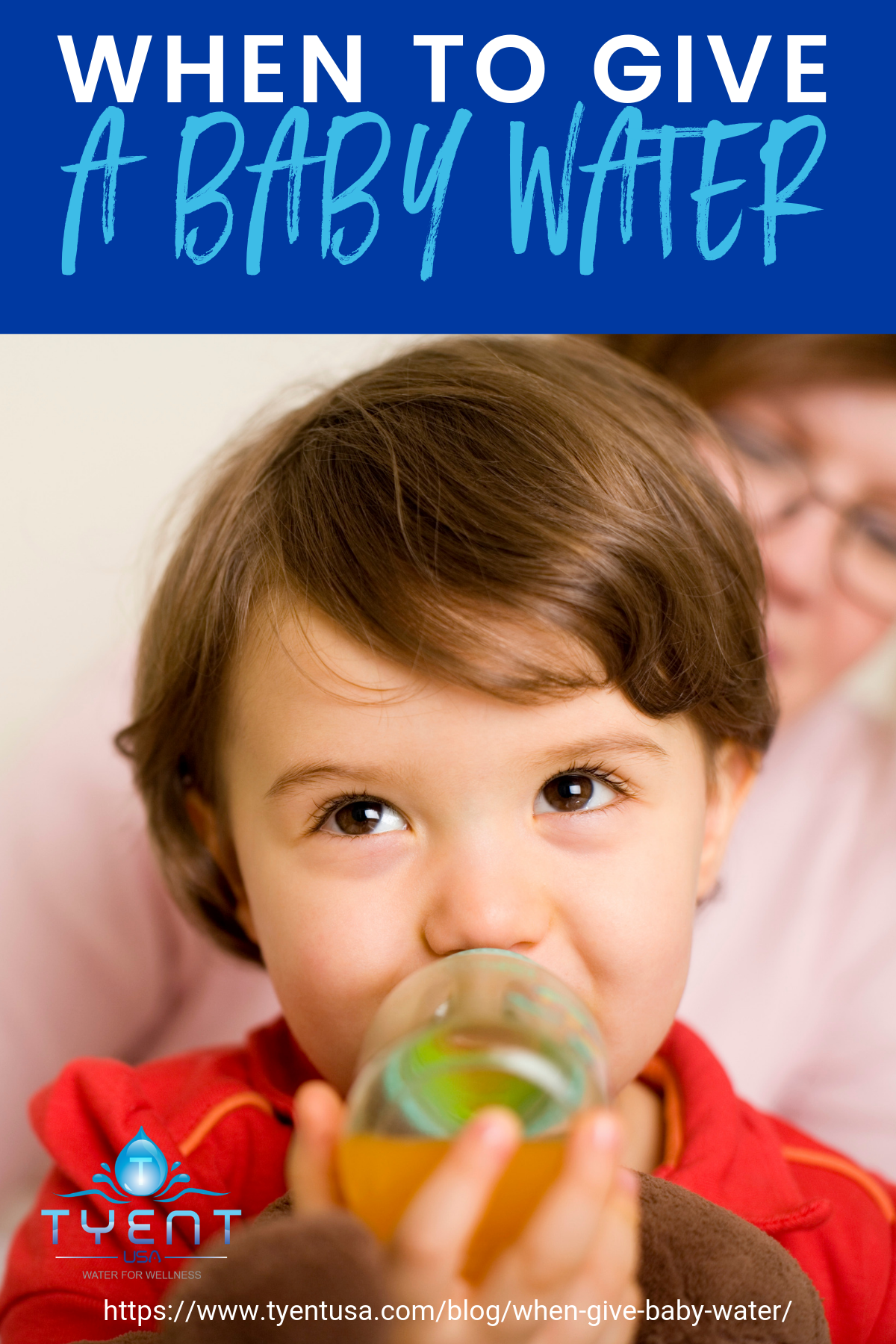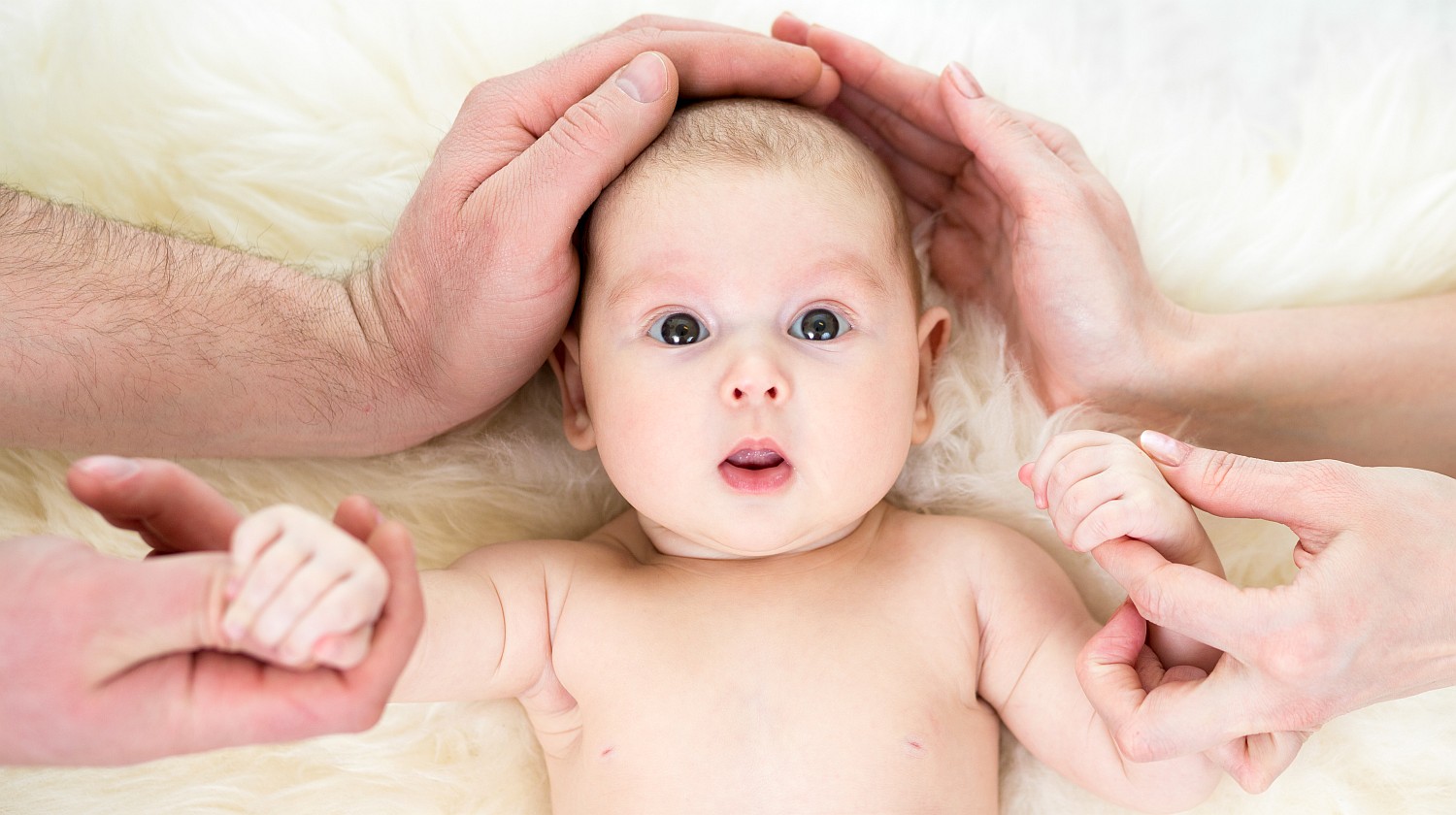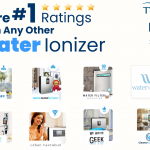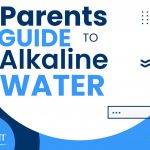Babies are born capable of only drinking milk, but the time will come you’ll need to give your baby water.
RELATED: Back-to-School Hydration Tips For Kids
In this article:
- Can Babies Drink Water?
- Can I Give My Baby Water for Emergencies?
- When Can Babies Drink Water?
- Is It Dangerous to Give a Baby Water?
- What Kind of Water Is Safe for Mixing in Baby Formula?
- What Kind Of Water Should 6-12-Month-Old Babies Drink?
Giving Water to a Baby and Other Questions
Can Babies Drink Water?
As a general rule, babies should not have to drink water until they are six months of age. Until then, a baby gets all their hydration needs from breast milk and/or formula, even during hot or dry weather.
Can I Give My Baby Water for Emergencies?
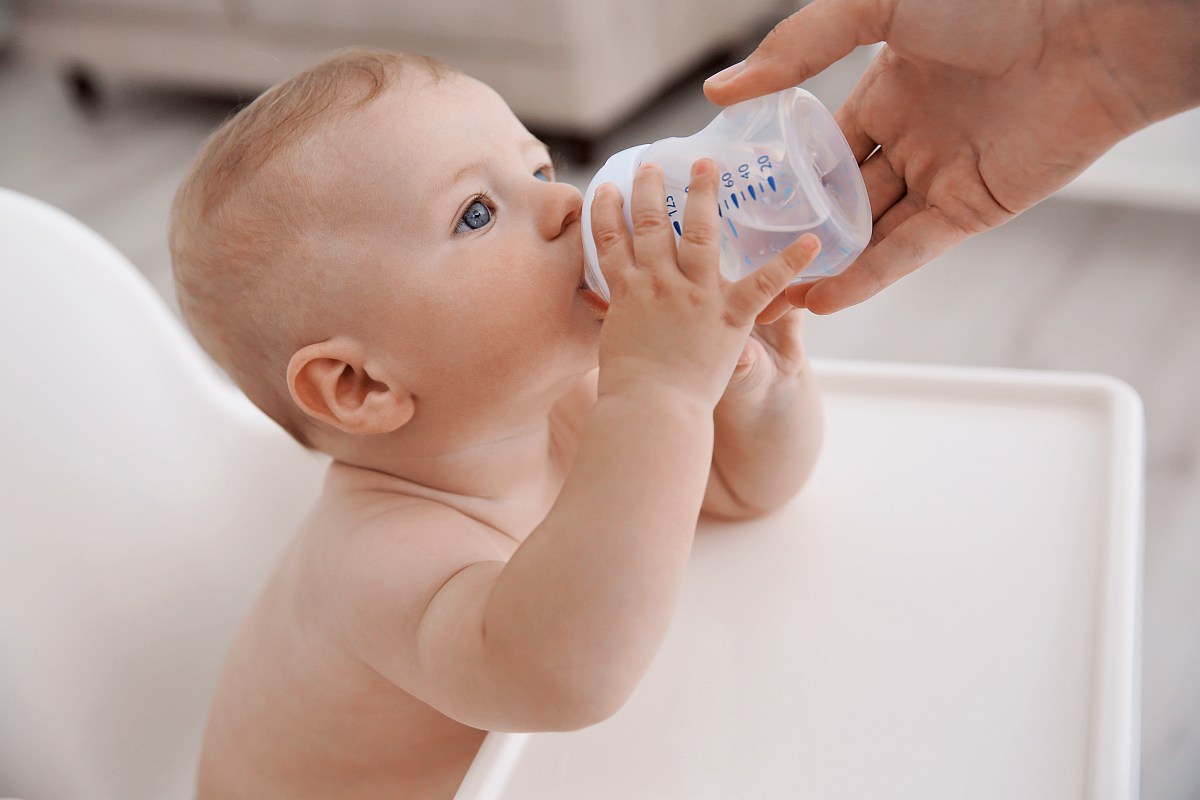
In emergency cases such as in extreme dehydration or gastroenteritis, your pediatrician may advise you to give your baby water. But the water needs to be mixed with electrolytes.
Drinks such as Pedialyte or Infalyte are some examples of what your pediatrician might recommend to prevent dehydration.
In no such instance should you mix water to extend a baby’s milk formula. This only dilutes the nutrients your baby needs to grow and develop.
What Is Gastroenteritis? Most commonly known as the stomach flu, gastroenteritis is when the stomach and intestines become inflamed. This likely comes as a result of bacteria, toxins, or viral infections.
Common symptoms of gastroenteritis include diarrhea, vomiting, and dehydration.
When Can Babies Drink Water?
When your baby reaches six months of age, you may slowly start integrating water into their diet and allowing them sips of water whenever they get thirsty. Breast milk or formula still needs to be their primary source of nutrition up until they reach a year old.
When your baby is a year old, you can start introducing other types of milk, such as cow’s milk diluted in water, but breast milk/formula should still be their main drink.
At this time, your baby may also have started eating solid food. In time with weaning, let your baby sip water from a cup as they eat their solid food.
This is so your baby can learn to drink from a cup, as well as prevent constipation due to the increased solids present in their stool.
Is It Dangerous to Give a Baby Water?
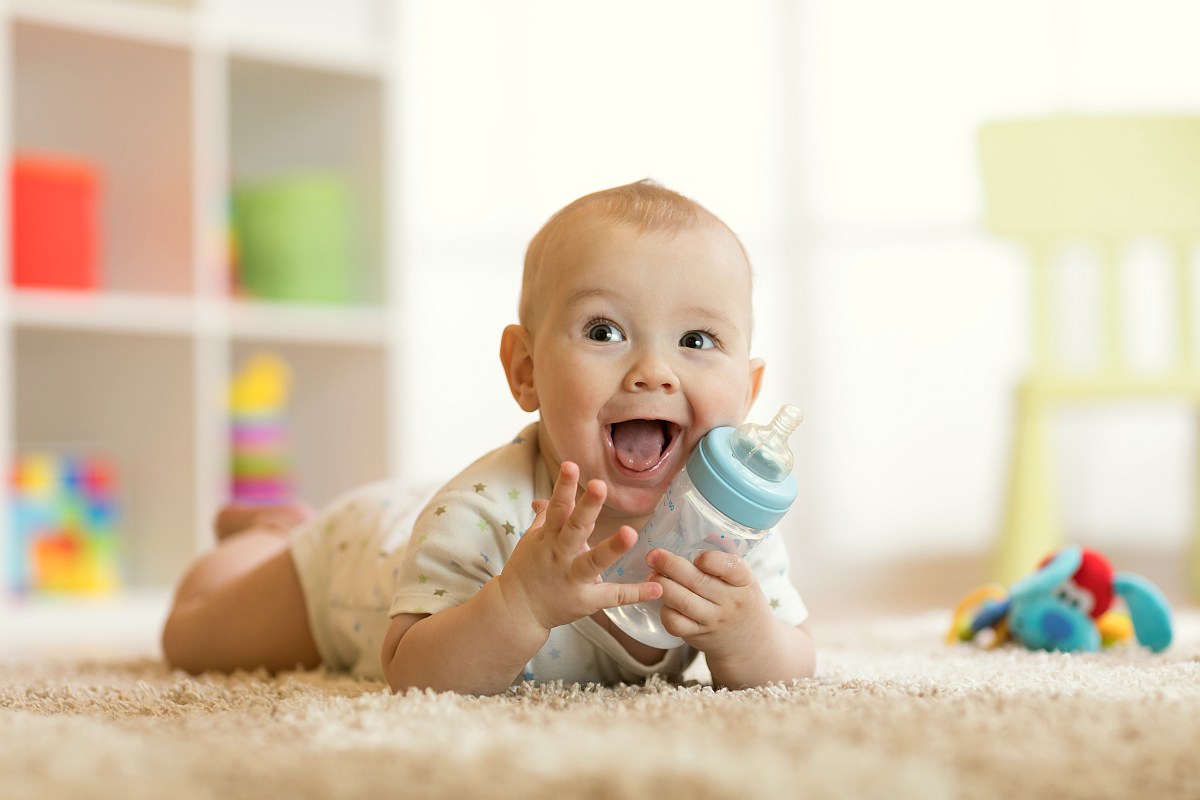
When you give a baby younger than six months old water, it can interfere with the body’s ability for nutrient absorption. It can also lead a baby into feeling full, which curbs their appetite, which is a potential danger as they only draw nutrients from milk.
With such small stomachs and very few sources for nutrition, giving a baby water can also lead to water intoxication. This happens when there is far too much water in the body and it seeps from the blood and into the cells, throwing the natural sodium-water balance off.
Sodium keeps the balance of fluid in and around cells, so when they’re diluted and overwhelmed with too much water, tissues can swell and lead to seizures.
What Kind of Water Is Safe for Mixing in Baby Formula?
While you can’t give a baby water on its own until they are 6-12 months old, some younger babies require a formula that needs to be mixed with water. Before introducing formula into your baby’s diet, be sure to ask your pediatrician for recommendations, especially if your baby has any health concerns.
Experts at the Centers for Disease Control recommend using warm water when mixing milk formula. This is to avoid the risk of infection by the bacteria Cronobacter, which can be found in powdered milk.
To kill Cronobacter, you must mix the formula as soon as the water is boiling. From there, you can simply let the mixture cool down to a consumable temperature.
Experts from the American Dental Association recommend that babies should not be ingesting any water that has high levels of fluoride. This is because fluoride increases the risk for enamel fluorosis, which develops as the teeth are just forming in gums.
Always check the nature of tap water in your house, and your local water system and utility. Any kind of tap water that has 0.7mg/L or higher levels of natural fluoride should be avoided.
Bottled water is a good alternative water source for mixing with baby formula. It is purified, demineralized, and sometimes distilled. Some bottled waters can be labeled specifically for use in baby formulas too.
RELATED: 7 Tips To Finding The Best Water Ionizer On The Market
What Kind of Water Should 6-12-Month-Old Babies Drink?
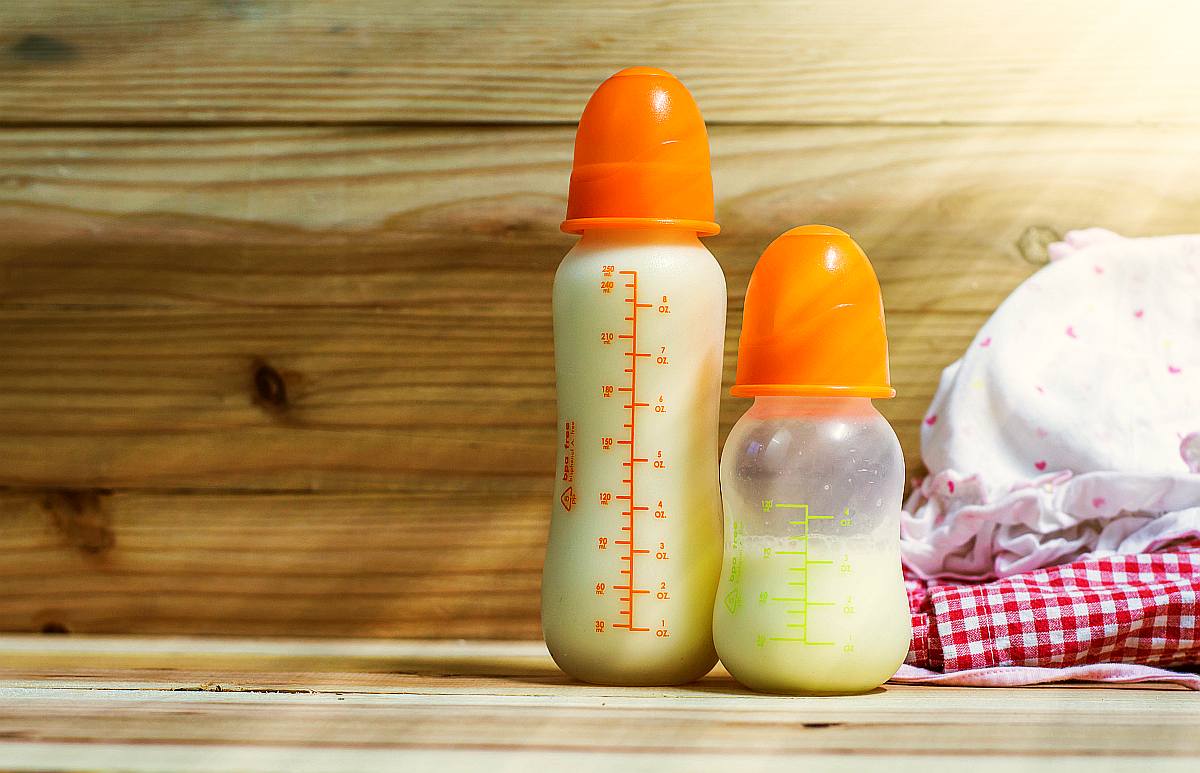
There isn’t just one type of water out there and when it comes to babies, every small detail counts. Here are some different types of water babies can be exposed to:
Tap Water
Tap water is among the cheapest option for drinking water, especially if you have your own well. It is often treated for bacteria and pollutants when it comes from a city water supply, and some pediatricians recommend its exposure to babies for them to develop an immunity against minor pollutants present in it.
The downside is not all bacteria and pollutants can be completely filtered out of tap water. It can have a strange taste depending on where your water source is, and boiling tap water as a precaution can be a tedious and complicated task.
Filtered Water
This is also a cost-efficient option, as the only thing you’d have to buy is the filter itself. Besides its ability to remove plenty of contaminants through the filtering process, filtered water can also last stored in a refrigerator for days without risks.
The cons of having a water filter are it cannot remove all contaminants, including fluoride, and a high-quality filter can be very expensive. It can also be a challenge for when you are traveling with your baby and filtered water can be difficult to get by.
Mineral Water
Mineral water is very easy to find as they are well-packed and are sold and distributed all over the world. Minerals present in the water can also have the added benefit of giving your baby extra nutrients.
But, many kinds of mineral water can be carbonated, which is bad for babies. The many minerals present in mineral water can also tip the balance of your baby’s own mineral levels and cause illness.
Distilled Water
Distilled water is highly recommended by pediatricians. It undergoes a process removing a large majority of contaminants before it is up for sale to the general public.
The only catch is distilled water can have a strange taste babies may dislike, and may even lead to difficulty transitioning your baby to drinking other kinds of water in the future. Distilled water can also be tricky to store in the long-term without exposing it to plastic.
Alkaline Water
Alkaline water has many benefits to the body. It replaces electrolytes, balances the body’s pH, and can be quite tasty.
But there’s a catch: many pediatricians adamantly recommend against giving alkaline water to babies, especially to those under 12 months. Alkaline water can unbalance the pH levels of a baby’s small and sensitive body.
However, your water ionizer can still come in handy if it has an H2O button, which creates purified water with a neutral pH. Plus, often times the filters on quality water ionizers are better than standard filtering systems. For extra protection, be sure to install a filter to remove fluoride if it’s present in your tap water. You can find out what contaminants are in your tap water by downloading your free water report here.
Parents agree that making a choice is difficult when it comes to babies, such as what kind of water they can drink. Doing your due diligence in thorough research, and constantly consulting with your pediatrician will reduce any doubts and anxieties.
To provide safe and clean water for each and every member of the family, it may be helpful to purchase a reliable water ionizer. This way you can have alkaline water for the adults, and clean water for younger members of your family.
Do you have any water-drinking tips to share for our new parents? Share the knowledge in the comments section below!
Up Next:
- Hey Kids…You May Want To Put Down That Fruit Juice And Drink From A Water Ionizer Now
- Water Ionizers vs Soda? It’s A No-Brainer! [Infographic]
- Children And Alkaline Water
